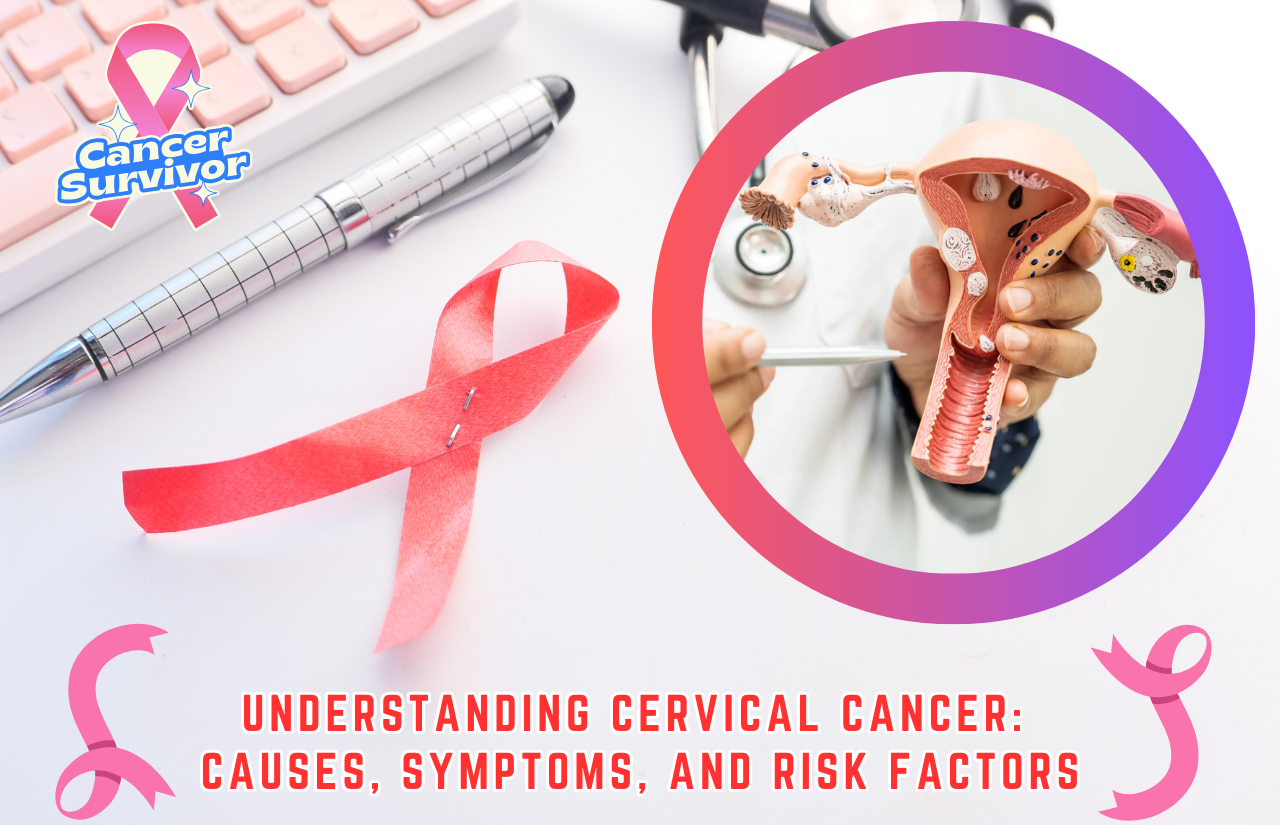What is Cervical Cancer?
Cervical cancer happens when cells change in the cervix which connects the uterus and vagina. In the other way this cancer can affect the deeper tissues of the cervix and spread to other parts of the body like the lungs, liver, bladder, and rectum.
Various strains of the human papillomavirus, also called HPV, play a role in causing most cervical cancers.
In a small percentage of people however the virus survives for years. When exposed to HPV, the body’s immune system of course prevents the virus from doing harm.
Those with female anatomy aged 35-44 are most likely to get it. More than 20% of new cases are in women over age 65, especially those who haven’t been getting regular screenings.
Cervical Cancer Symptoms:-
● When it starts cervical cancer symptoms might not cause symptoms.
● Vaginal bleeding after intercourse between periods or after menopause.
● In other ways, vaginal discharge is watery, bloody, and or has a strong odor.
● In the same way Menstrual bleeding that is heavier and lasts longer than usual.
● In other words pelvic pain or pain intercourse.
It has lay out the cancer can cause:-
1. Pelvic pain
2. Kidney failure
3. Bone pain
4. Weight loss and lack of appetite
5. Stomach pain
Type of Cervical cancer:-
Cervical Cancer is the divided into two parts.
1. Squamous cell carcinoma:- It type of cancer begins in thin, flat cells, called squamous cells. The squamous cells. In other ways squamous cells line the outer part of the cervix.
2. Adenocarcinoma:- In this case the column shaped gland cells that line the cervical canal.
Stages of Cervical cancer:-
● The first stage is cancer that starts only in your cervix.it has not spread and is small.
● The second stage is lay out beyond your cervix and uterus but has not yet spread to your pelvic wall or vagina.
● The other is your bladder, rectum or other parts of the body like your bones or lungs.
Risk factor:-
Smoking increases the risk of cervical cancer. When HPV infections happen in people who smoke, the infection tends to last longer and less likely to go away.
The second factor is more than the number of sexual partners the greater your number of sexual partners, and the greater your partner’s number of sexual partners as a result the greater your chance of getting HPV.
The HPV vaccine protects against certain cancers caused by human papillomavirus (HPV) infection. The cervical cancer vaccine can also protect against genital warts. The HPV vaccine the recommended for people ages 9 to 45.
The HPV vaccine approved for use in both males and females aged 9 to 45 years. In case of the latest information, Gardasil 9 is price at Rs 10,850 per dose in India.
Another Top cervical cancer vaccine In India Gardasil targets four strains of HPV 6, 11, 16 and 18 and has licensed for use in India since 2008. Its cervical cancer vaccine price India commercially available for 2,000 to Rs 4,000 per dose.
Cervical Cancer Diagnosed:-
If your Pap test as well as HPV DNA tests show signs of cells that might have cancer, so the doctor has to run more tests to confirm that you do have cervical cancer.
In a punch biopsy small tissue samples taken using a sharp circular instrument. This is the done in the doctor’s office.
On the other hand, a narrow instrument called a curette collects tissues from the cervical canal connecting the vagina to the uterus.
In a LEEP, your doctor uses an electrified loop of wire to take a sample of tissue from your cervix. You might have this in your gynecologist’s office.
If a biopsy shows cancer that’s further along, your doctor will as likely as not do more tests to see whether it’s spread and how far.
● A chest X- ray to check your lungs
● A colposcopy to look at your vagina
● Another is Blood tests ,CT scan , MRI as well as PET scan of your lymph nodes
● In the other word a rectal exam and barium enema to check your rectum.
Cervical Cancer avoidance:-
● If you are 25 to 65, you should get an HPV test every 5 years.
● HPV alone isn’t available. You can get a combined HPV as well as a Pap test every 5 years or as well as 3 years.
● Another case is sexually active and has a higher risk for STDs, and gets tested for chlamydia, gonorrhea, and syphilis each year. In that case take an HIV test and save the high risk.
● You don’t need screening if you’ve had your cervix removed and have no history of cervical cancer or precancerous lesions.
Conclusion
Overall from the Taazabytes diagnosed with cancer is both shocking as well as high risking. For the most part, discuss any question and concerns with your healthcare team to make sure you understand your diagnosis and start the treatment as soon as possible.
Also Read : Poonam Pandey Passes Away At 32 Due To Cervical Cancer









